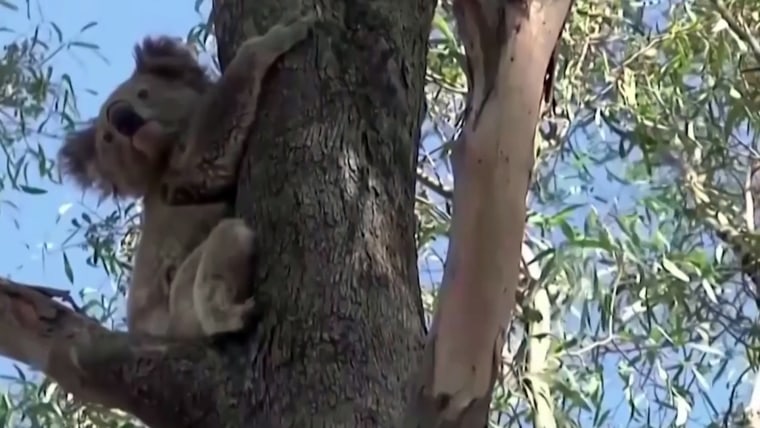Australia’s minister for the environment cited drought, fires and a shrinking habitat for the Koalas’ change in from vulnerable to endangered.
(AUSTRALIA – ).- Australia declared the koala endangered in the eastern part of the country Friday, with signs of climate change contributing to the marsupials’ declining numbers.
The country’s minister for the environment, Sussan Ley, announced the change from vulnerable to endangered, and cited drought, wildfires, and deforestation that infringes on the indigenous koala’s habitat.
The status denotes “high risk of extinction in the wild” and entails one of the highest levels of mortality for a species, just below critically endangered and extinct. The designation is based on internationally recognized criteria, according to the government.
Any action inspired by the status change is largely up to lawmakers, although the government announced funding of $35 million for “recovery and conservation” in January.
“The new listing highlights the challenges the species is facing,” Ley said in a statement.
The upgraded status covers the animal in Queensland, New South Wales and the Australian Capital Territory. The minister said she acted after seeking advice from the nation’s Threatened Species Scientific Committee.
“The impact of prolonged drought, followed by the black summer bushfires, and the cumulative impacts of disease, urbanisation and habitat loss over the past twenty years have led to the advice” on the animal’s status, she said.
The nation’s Black Summer wildfires of 2020 left 34 people dead and torched at least 44 million acres. The World Wide Fund for Nature-Australia estimated that 60 million koalas suffered fire impacts that included “death, injury, trauma, smoke inhalation, heat stress, dehydration, loss of habitat, reduced food supply” and more.
The koala has long been affected by climate change and land clearing for farming and urban development, according to the Threatened Species Scientific Committee.
A 2020 report commissioned by the International Fund for Animal Welfare concluded the koala’s numbers in New South Wales plummeted 28 to 65 percent in three generations before the fires took place.
The minister’s statement Friday does not mention climate change or global warming, but it did blame events, such as drought and fires, long said to be enhanced in size and frequency by a warming planet.
The marsupial’s access to water was key to its survival, the report said, and there’s evidence over the last century that its migration was motivated by thirst.
The Australian Koala Foundation was not impressed with the minister’s action, saying it’s not backed by a prohibition on land clearing, an issue it argues is the most crucial to the animal’s survival.
“The change does nothing legally and not backed by any legislative action needed to stop land clearing, which is the key reason for Koalas becoming homeless and then getting sick with disease,” the organization said in a statement Friday.
In its statement, foundation’s chair Deborah Tabart called the minister’s pronouncement a “token gesture.” The group said any protections should also extend to the states of Victoria and South Australia.
The endangered status would be reflected in national environmental law but needs final approval from the states, the minister’s office said.
San Miguel Times
Newsroom


